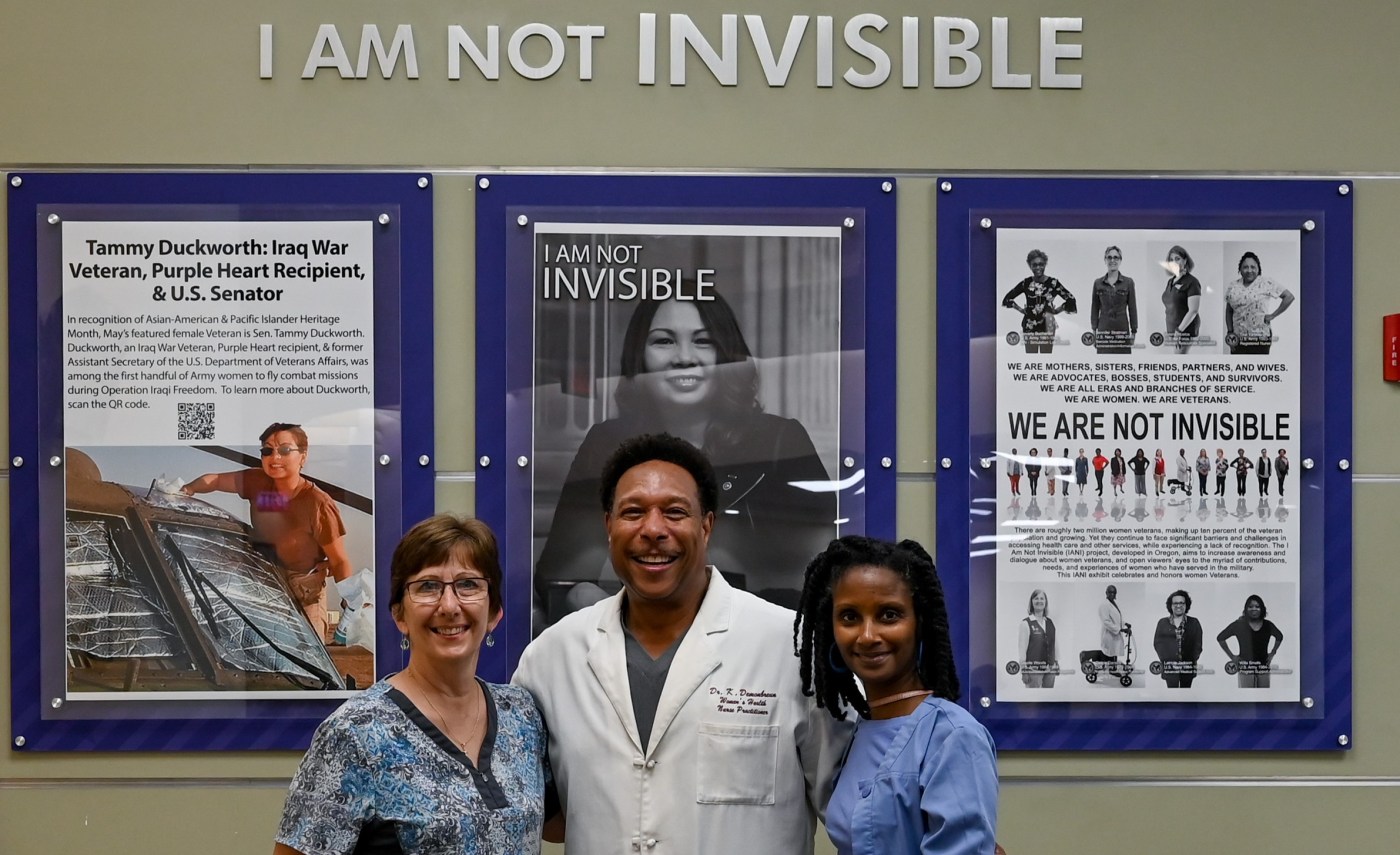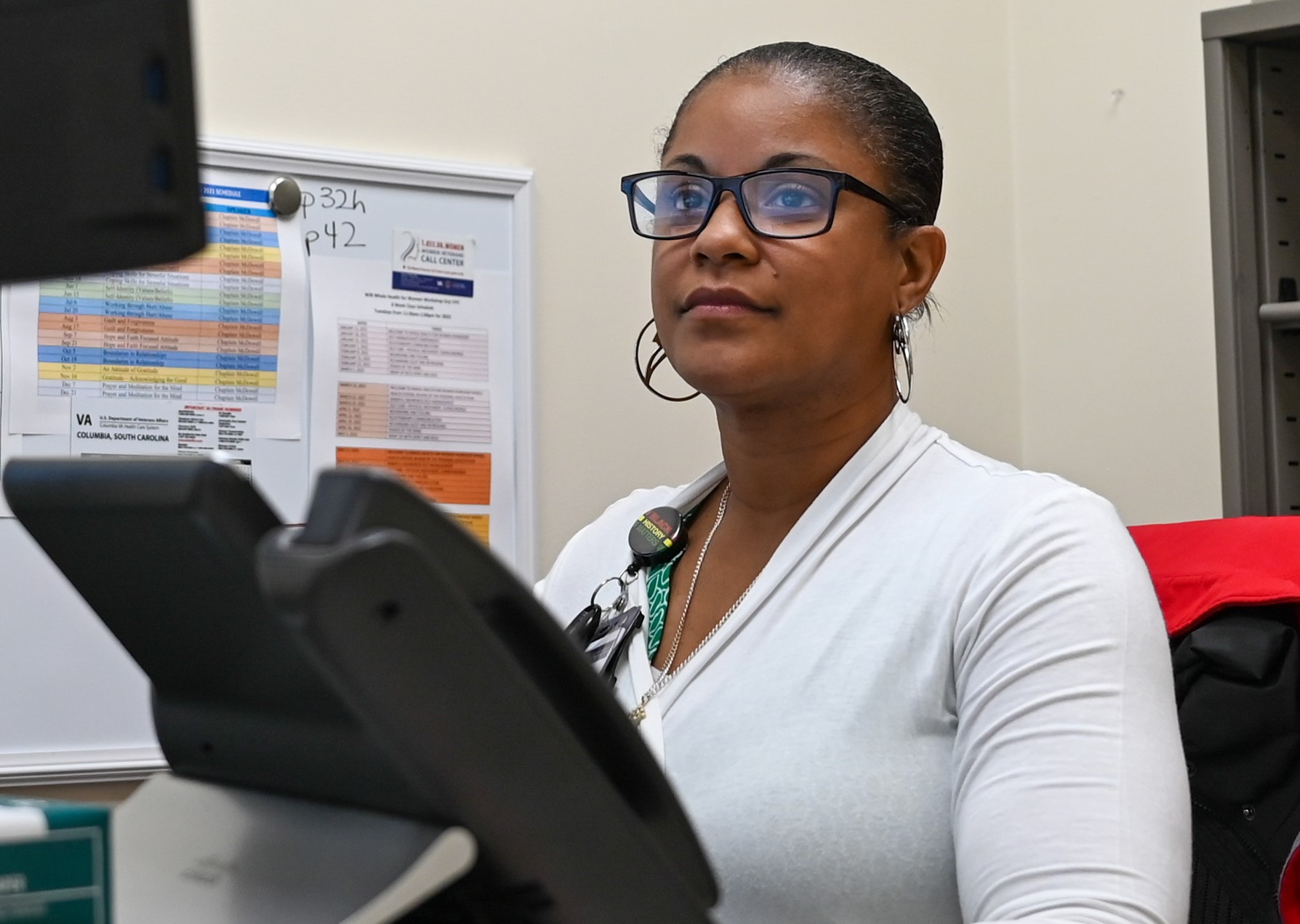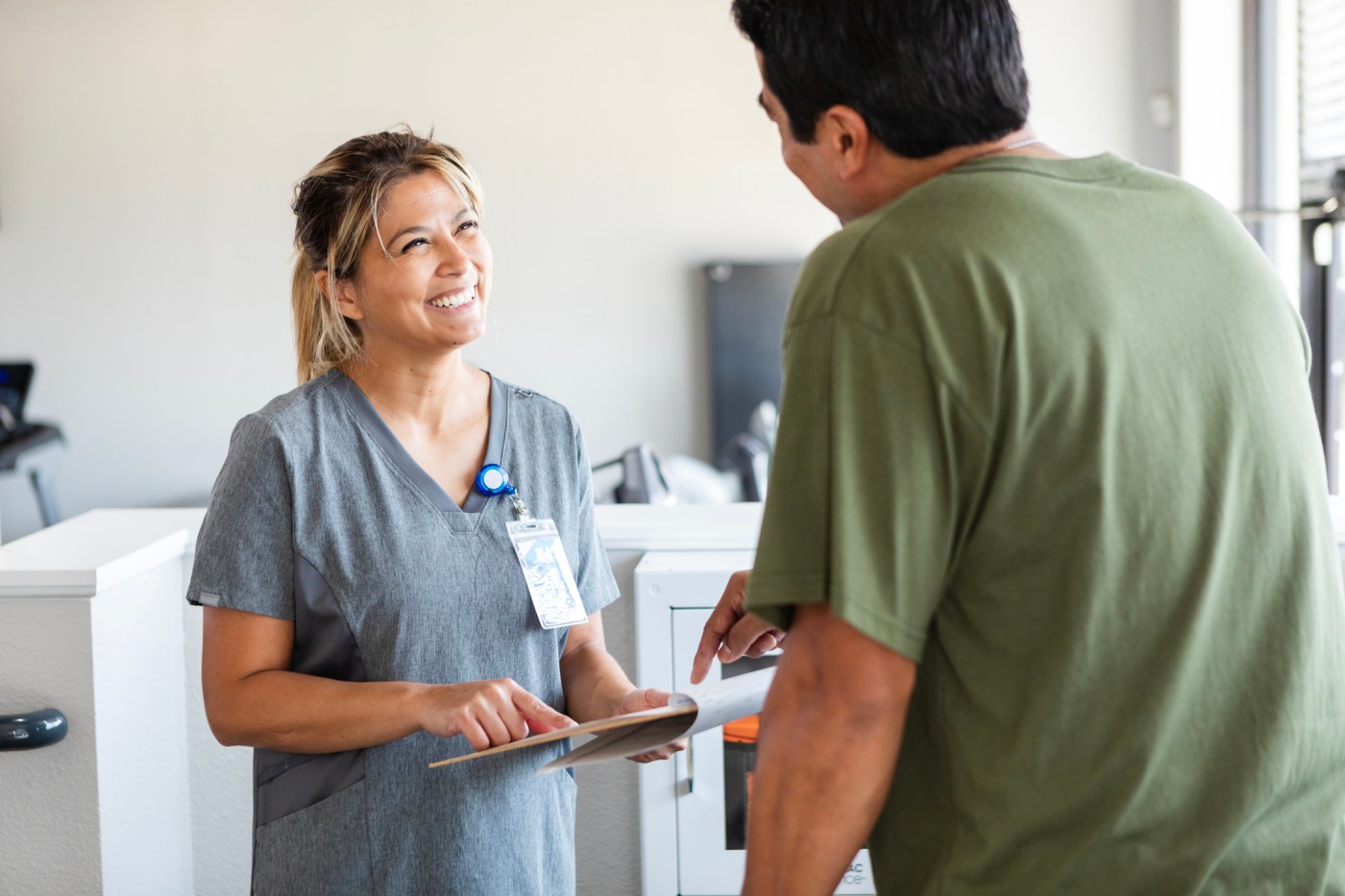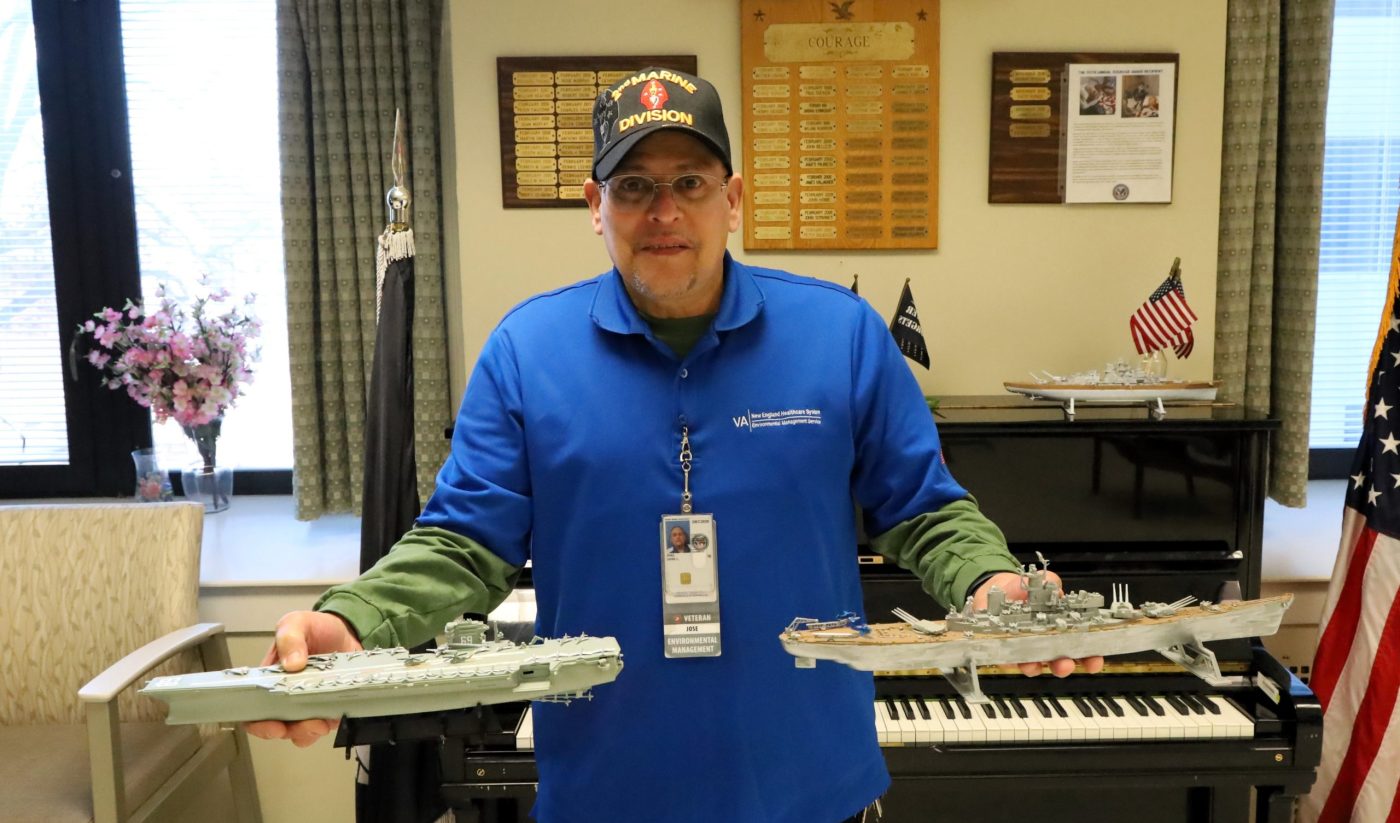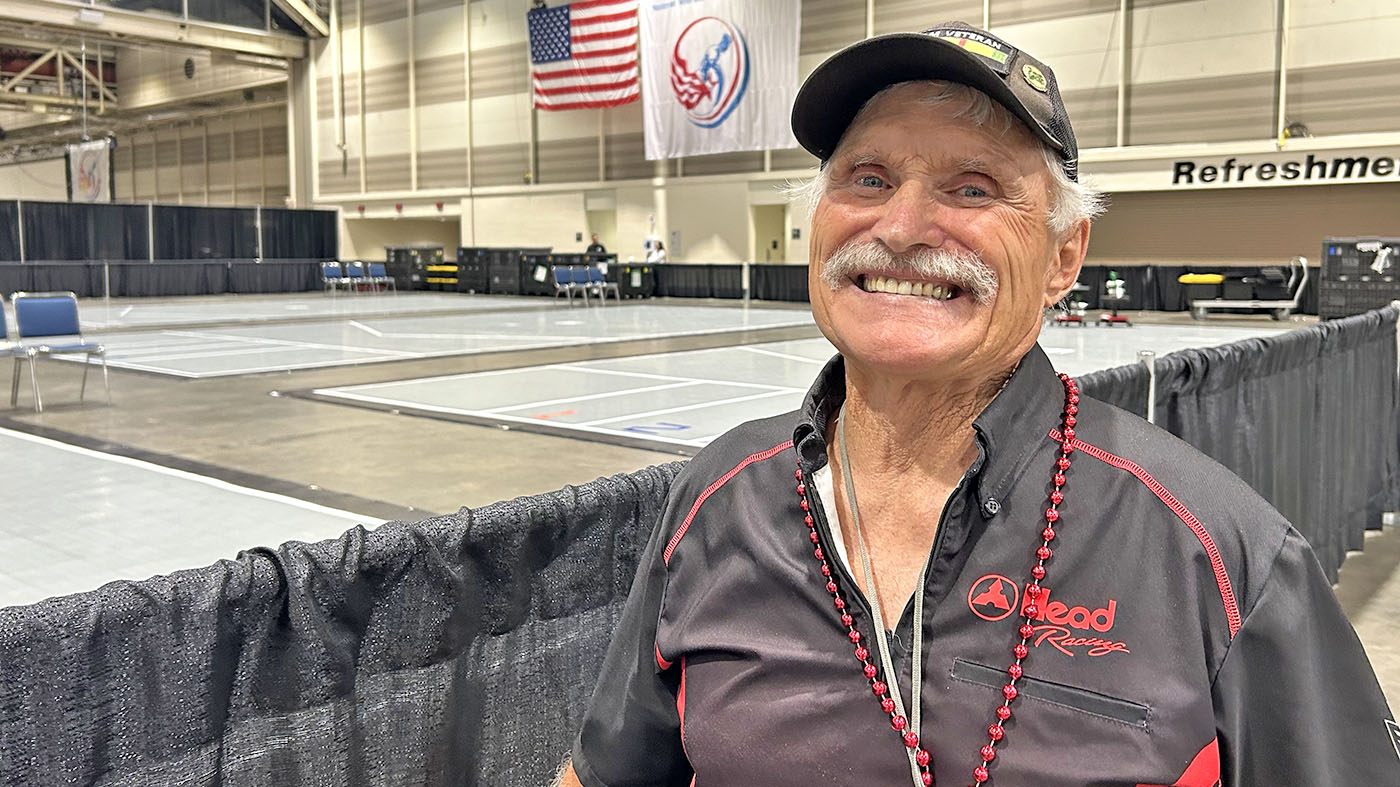The Columbia VA team of medical professionals in the Women’s Health program aim to ensure every female Veteran who receives care there feels empowered, comfortable and treated with dignity.
“I’ve taken care of women for more than 30 years. I’m a dad of two daughters and have been married for about 35 years,” said Women’s Health Medical Director Kahlil Demonbreun. “Somewhere along the line I decided I wanted to take care of women. I didn’t know exactly what that meant then, but doing what I do now is exactly the vision I had. I’m excited to be here, leading the path and taking on the challenge of providing great health care to our female Veterans.”
VA is serving more and more female Veterans per year. The population of women Veterans is expected to increase at an average rate of 18,000 women per year through 2027.
Providing health care to 12,000 female Veterans
“We are growing in terms of our female Veteran enrollment exponentially,” said Demonbreun. “Since I first arrived here seven years ago, our female enrollment has grown by several thousand. With that growth, we’ve brought on providers with different skill sets and new technologies for how we provide service. We are creating an environment more conducive to our female Veterans.”
Today, Columbia VA provides health care services to nearly 12,000 women across the Midlands. As that number grows, they aim to ensure its female Veterans are receiving top-notch care across the board.
To help familiarize staff with caring for female Veterans, Rose Hutson, Women Veteran program manager, along with Demonbreun, created the “I Care 4 Her” educational initiative.
“I saw there was a lack of information and experience in caring for women,” said Hutson. “’I Care 4 Her’ provides our staff an opportunity to learn more about women physiologically. We take it system-by-system to help our providers be more educated about women. It gives providers and nurses a chance to ask questions about specific scenarios.”
An environment of the whole health approach
Hutson says that since the start of the “I Care 4 Her” initiative, the comfort level of providers with female patients has increased and has given primary care providers the opportunity to learn more about things such as contraceptives, mammography, maternity programs and more.
To Hutson, health care is more than just caring for the physical body. She helps to foster an environment that embodies a whole health approach aimed at helping women both physically and mentally/psychologically.
Hutson oversees a quarterly virtual women’s health forum, as well as a Women’s Empowerment group. Both programs are aimed at ensuring the care female Veterans receive is ever progressing.
“The health forum is a form of outreach for the women Veterans in our community,” said Hutson. “We are currently providing service to less than half of the eligible female Veterans in our area. We want women to know they can utilize VA as a resource for their health care, and not just for their physical health, but also their mental health.”
Here, female Veterans are not invisible.
Topics in this story
More Stories
One strategy credited for the improvement is a focus on building trust and stronger patient-provider relationships.
Army and Marine Corps Veteran started making models after being hospitalized at Connecticut VA.
Veteran Hank Ebert is a bit of a superstar in the National Veterans Wheelchair Games. He has been attending since 1993.

